The Works of Charles Hodge (27 vols.)
Digital Logos Edition
Overview
The Collected Works of Charles Hodge brings together Hodge's extensive body of work—almost 14,000 pages—with the power of Logos Bible Software. This massive collection includes:
- Over 4,000 pages of articles, essays, tracts, and book reviews he contributed to the Biblical Repertory and Princeton Review and other theological journals
- Four commentaries that contain verse-by-verse commentary on every chapter in Romans, 1 Corinthians, 2 Corinthians, and Ephesians, along with textual analysis, doctrinal points, and helpful chapter summaries
- Hodge's 3-volume Systematic Theology
- All of Hodge's published books, including The Way of Life, What Is Darwinism?, The Church and Its Polity, and more
- Study guides, written by Hodge, for use with his commentaries and his Systematic Theology
- Digital transcriptions of Hodge's European journals as well as five sermons on Romans from hand-written manuscripts
- A biography of Charles Hodge written by his son, A. A. Hodge
- All of Hodge's General Assembly articles from 1835–1867 collected into one resource
- Plus sermons, letters, lecture outlines, social commentary, and much, much more!

- The most complete collection of Charles Hodge's writings available in print or electronically!
- Almost 14,000 pages of content
- Digital transcriptions of Hodge's European journals as well as five sermons on Romans from hand-written manuscripts
- Completely searchable and linked to the other resources in your Logos library
Through his heartfelt personal piety, encyclopedic intellect, and position of influence at the country's most important Presbyterian seminary, Hodge spent his nearly-sixty-year career crafting a uniquely American strain of Reformed theology. Mainly through his writings in the Repertory, but in numerous other venues as well, he brought his confessional beliefs to bear on issues as diverse as slavery, temperance, presidential politics, war, international diplomacy, advances in science, educational reform, and domestic and foreign missions.
. . . few Americans can match the depth, breadth, and longevity of Hodge's theological influence, and perhaps no single figure is better able to help one appreciate the immensely powerful and hugely complex nature of conservative American Protestantism in the nineteenth, twentieth, and twenty-first centuries that the deeply pious, keenly intelligent, and yet largely forgotten Charles Hodge.
—Paul C. Gutjahr, author of Charles Hodge: Guardian of American Orthodoxy
Unabashed in his enthusiasm for sound orthodoxy coupled with Reformed piety, as churchman, theologian, controversialist, and writer on all matters of interest, he lived and worked as one of the nineteenth century's most influential Presbyterians.
—Andrew W. Hoffecker, author of Charles Hodge: The Pride of Princeton
The breadth of Hodge's concerns is disconcerting for our age, accustomed as we are to the specialists who mark out carefully defined fields for ever more minute examination. It was not so a century ago. Like several of his contemporaries Hodge considered the world fair game for commentary. So while he concentrated on questions of moment for his Presbyterian denomination, on issues of theological controversy at home and abroad, and on trends in American religious life, he also wrote with authority on the great events of American politics, on new proposals in philosophy, on a wide range of historical subjects, and on the religious implications of scientific questions.
—Mark Noll
I have sat under many noted teachers, and yet am free to say that as an educator I consider Dr. Hodge superior to them all.
—Benjamin B. Warfield
- Title: The Works of Charles Hodge
- Author: Charles Hodge
- Volumes: 29
- Pages: 13,872
- Systematic Theology, vol. 1
- Systematic Theology, vol. 2
- Systematic Theology, vol. 3
- Index to Systematic Theology
- Commentary on the Epistle to the Romans
- An Exposition of the First Epistle to the Corinthians
- An Exposition of the Second Epistle to the Corinthians
- A Commentary on the Epistle to the Ephesians
- The Way of Life
- What Is Darwinism?
- Princeton Sermons
- What Is Presbyterianism? An Address
- The Constitutional History of the Presbyterian Church in the United States of America, vol. 1
- The Constitutional History of the Presbyterian Church in the United States of America, vol. 2
- Apostolic History and Literature
- A Dissertation on the Importance of Biblical Literature
- Proceedings Connected with the Semi-Centennial Commemoration of the Professorship of Rev. Charles Hodge
- The Church and Its Polity
- Questions on the Epistle to the Romans: Designed for Bible Classes and Sunday Schools
- Questions Adapted to Dr. Hodge's Exposition of the First Epistle to the Corinthians
- Questions on the Text of the Systematic Theology of Dr. Charles Hodge
- Systematic Theology: A Series of Questions upon the Lectures Delivered to the Students in Princeton Theological Seminary
- The Life of Charles Hodge
- Princetoniana: Charles & A. A. Hodge: With Class and Table Talk of Hodge the Younger
- The General Assembly Articles of Charles Hodge
- The Book Reviews of Charles Hodge
- Essays, Social Commentary, and Other Miscellaneous Writings of Charles Hodge
- Journal of European Travels
- Select Sermons of Charles Hodge
This title is included in the following collections
You can save when you purchase this product as part of a collection.
Logos 8 Reformed Platinum Lega...
$1,499.99$1,499.99Logos 5 Reformed Platinum Lega...
$1,499.99$1,499.99Logos 9 Reformed Platinum Lega...
$1,499.99$1,499.99Logos 8 Reformed Diamond Legac...
$2,999.99$2,999.99
- $2,999.99
- $2,999.99
- $2,999.99
- $4,749.99
- $4,749.99
- $12,102.39$7,299.99
- $21,749.99
- $24,999.99
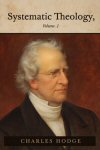
Considered his magnum opus, Charles Hodge's 3-volume Systematic Theology has remained a classic in Reformed theology. Volume one contains an extensive introduction that covers the nature of theology, rationalism, mysticism, Roman Catholic doctrine concerning the rule of faith, the Protestant rule of faith, and more. With these general principles outlined and explained, Hodge begins part one of the Systematic Theology with the following chapters:
- Part I: Theology Proper
- Origin of the Idea of God
- Theism
- Anti-Theistic Theories
- Knowledge of God
- The Nature and Attributes of God
- The Trinity
- The Divinity of Christ
- The Holy Spirit
- The Decrees of God
- Creation
- Providence
- Miracles
- Angels
It is recognized on both sides of the water as of standard and authoritative value. . . . The characteristic of Dr. Hodge's Theology is, that it aims to be most rigidly and scrupulously Biblical.
—New York Times
For clearness of view, force of argument, and general comprehensiveness and grasp, the work cannot be surpassed. Neither is it sectarian in its character, but rests upon the broad foundations of Evangelical truth. No theologian or controversialist can afford to be without it, since all the different phases of theological, metaphysical, and materialistic thought, from the oldest heresies to the newest notions, are exhaustively examined and analyzed.
—Newark Daily Advertiser
The book is undoubtedly the most important contribution to theological science of late years . . . Its beauty is, that while the profoundest theologians can read it with advantage, the simplest believer will be profited by its perusal.
—New York Observer
Nothing so elaborate, so profound, and extended has been given the world for many years.
—New York Evangelist
We know of no man now living who from long practice and experience in the sphere of theological controversy, and in intellectual greatness, in keenness of analytical and logical power, and mingled beauty and strength of style, is Dr. Hodge's superior in the department of literature which these volumes represent. We regard this work, in its fullness, as one of the most important that American thinkers have produced.
—Boston Watchman and Reflector
These are the words of our venerated teacher, to whom we listened in our youth, and from whom we have received a large portion of whatever of systematic knowledge of God's Word we may have attained. We can only give words of welcome to a volume like this from his hands.
—Philadelphia Presbyterian
It is perhaps not too much to say of it, that this is the most important contribution to the literature of theology since the days of Jonathan Edwards. The reputation of Dr. Hodge in this department, by reason of his lifelong associations and his eminent abilities, is such as to command for him, as a recognized authority, respectful hearing in all the churches.
—Philadelphia S. S. Times
It is sure of a wide welcome, not only from the many clergymen who were his pupils, but from all who are interested in the study of theology.
—New York Examiner and Chronicle
This volume is a monument of thought and Christian scholarship, and will be welcomed and studied by intelligent minds in all the Christian denominations.
—New York Christian Advocate
Dr. Hodge is doing an admirable work in this thorough exhibition of theological truth.
—Boston Congregationalist
The author, so widely known at home and abroad by his essays and commentaries, is an acknowledged master in the science of theology . . . No clergyman, or student of divinity, or layman who delights in profound thought, can well afford to be without it.
—Chicago Interior
The enumeration of the subjects is sufficient to show the great value of the work by an author of such admitted learning and ability. It is not too much to say that this is the first of the theoligical works of the present age.
—Pittsburgh Presbyterian Banner
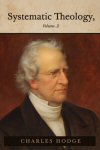
Considered his magnum opus, Charles Hodge's 3-volume Systematic Theology has remained a classic in Reformed theology. Volume two contains Hodge's study on the nature of man, Anthropology, and the first part of his study on salvation, Soteriology. Volume two includes the following chapters:
- Part II: Anthropology
- Origin of Man
- Nature of Man
- Origin of the Soul
- Unity of the Human Race
- Original State of Man
- Covenant of Works
- The Fall
- Sin
- Free Agency
- Part III: Soteriology
- Plan of Salvation
- Covenant of Grace
- The Person of Christ
- The Mediatorial Work of Christ
- Prophetic Office
- Priestly Office
- Satisfaction of Christ
- For Whom Did Christ Die?
- Theories of the Atonement
- Intercession of Christ
- Kingly Office of Christ
- The Humiliation of Christ
- The Exaltation of Christ
- Vocation
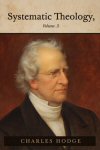
Considered his magnum opus, Charles Hodge's 3-volume Systematic Theology has remained a classic in Reformed theology. Volume three contains the second part of Hodge's study on salvation, Soteriology, and Eschatology, the final section of Systematic Theology. Volume three includes the following chapters:
- Part III: Soteriology (Continued)
- Regeneration
- Faith
- Justification
- Sanctification
- The Law
- The Means of Grace
- Part IV: Eschatology
- State of the Soul After Death
- Resurrection
- Second Advent
- Concomitants of the Second Advent
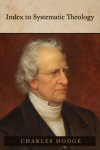
This volume serves as an index for all three volumes in Charles Hodge's Systematic Theology.
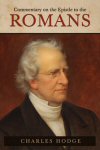
Charles Hodge introduces the book of Romans by discussing the authorship, dating, and setting of the epistle. He also devotes attention to the nature of the original audience, with particular emphasis on the historical and theological context of the church in Rome and the role of Jews in the Roman Empire—fundamental issues which comprise the backdrop of Pauline theology.
The entire volume contains verse-by-verse commentary on each chapter of Romans. Hodge examines both the Greek text and his own English translation, which means that this commentary—like all the commentaries in this collection—are as useful to New Testament scholars as they are accessible to laypersons. He concludes his commentary on each chapter with a summary of the key doctrinal points and their relevance for exegesis and interpretation.
Hodge's method and matter make him doubly useful in commenting. He is singularly clear, and a great promoter of thought.
—Charles Spurgeon
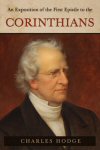
Hodge begins his commentary on 1 Corinthians with an introduction to the geographic and political significance of the city of Corinth. In particular, he shows how the history of Corinth, its relationship to the city to Athens, and the political climate of the Roman Empire contribute to the pastoral and theological controversies which Paul aims to address.
Hodge also attends to the theological implications of Paul’s pastoral concerns for the church in Corinth—issues such as church divisions, sexual immorality, marriage and divorce, idolatry, worship, spiritual gifts, and the resurrection. More importantly, Hodge argues that 1 Corinthians has made its way into the New Testament canon because Paul’s words on these theological and pastoral issues are fit not only for his original readers, but also for the entire history of the church. This commentary on 1 Corinthians serves as an important first step toward hearing those words.
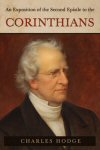
Hodge continues his commentary on Paul’s correspondence with the church in Corinth. In this volume, he addresses Paul’s journeys, the new covenant, the resurrection, reconciliation, idolatry, repentance, generosity, and suffering.
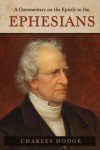
Hodge’s commentary on Ephesians begins with a discussion of the geographic and political significance of the city of Ephesus, and the unique position in which the church there found itself. In particular, says Hodge, the church struggled with how best to resist idolatry and how to relate to their broader culture—not unlike issues faced by the contemporary church.
Hodge also outlines Paul’s history with the church in Ephesus and the timeline of his work, including individuals with whom he met, disputes he resolved, and the other apostles who influenced the church in Ephesus. Hodge also notes the significance of Paul’s infamous confrontation with the supporters of Artemis, along with the relationship between the ensuing riot and the content of the Epistle.
In addition to verse-by-verse commentary and linguistic and textual analysis of every chapter in Ephesians, Hodge also comments more broadly on trends in Ephesians scholarship. He examines German critics and higher criticism in general, and he evaluates nineteenth century commentaries on Ephesians.
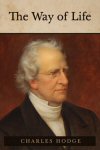
What do the Scriptures teach? Charles Hodge explores some of the major themes of the Bible—sin, faith, justification, repentance, holy living, baptism, and more—and explains the influence which these doctrines should exert upon the heart and life.
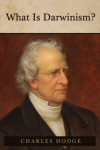
After discussing several varying theories of the universe and its phenomena, Charles Hodge delves deep into Darwinism. Explaining the principles behind Darwinism and natural selection, Hodge gives a clear and thorough rebuttal to the theory and points out its faults and flaws.
Remarkable for two things: first, the clearness and force with which it sets forth the fact that Darwin himself rejects the doctrine of design as an essential feature of his theory; and second, the abundant extracts from various writers by which he illustrates the atheistic spirit of the great majority of the naturalists of the Darwinian School.
—The New Englander
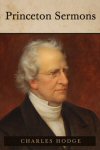
From the time of its foundation, Princeton Theological Seminary had a Sabbath afternoon tradition where its professors would meet with students to discuss matters of Scripture—as pastors and friends, not as instructors. The professors would give a sermon, and then the group would discuss what it meant. "Here they sought rather to build up Christian men, than to form accomplished scholars, and to infuse into their pupils the highest motives, and to instruct them in the wisest methods for their future work of saving souls and of edifying the Church of Christ."
Charles Hodge prepared for these sermons as much as he did for his theology courses, believing them to be just as important. Princeton Sermons contains 249 of Hodge's sermon outlines divided into ten themes:
- God and His Attributes
- Christ, His Person, and Offices
- The Holy Spirit and His Offices
- Satan and His Influence—Sin and Sins
- Conversion—Entrance upon the Christian Life
- Christian Experiences, Characteristics, and Privileges
- Christian Responsibilities and Duties
- The Means of Grace—The Scriptures, Ministry, Sacraments, Etc.
- Death, and the Consummation of Redemption
- Last Words—Papers Prepared During the Last Years of His Life
They present in an analytical form an amount and quality of homiletical example and suggestion probably not surpassed in the English language.
—United Presbyterian Magazine
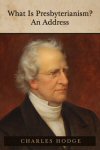
Delivered in 1855 before the Presbyterian Historical Society in Philadelphia, What Is Presbyterianism? is an informative discourse on the polity of the Presbyterian Church. Hodge regards Presbyterianism as not "a skillful product of human wisdom; but as a divine institution, founded on the word of God, and as the genuine product of the inward life of the Church."
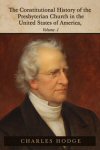
The Constitutional History of the Presbyterian Church in the United States of America aims to exhibit the character of the Presbyterian Church, to show on what principles it was founded and governed, and to exhibit historically its constitution, both as to doctrine and order. Volume one covers the years 1705–1741.
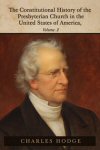
The Constitutional History of the Presbyterian Church in the United States of America aims to exhibit the character of the Presbyterian Church, to show on what principles it was founded and governed, and to exhibit historically its constitution, both as to doctrine and order. Volume two covers the years 1741–1788.
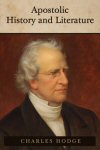
Apostolic History and Literature was prepared by members of the class of 1878, for the use of other students of Princeton Theological Seminary. Collating each other's notes from the lectures of Charles Hodge, the students of '78 felt this compendium would be of special value for those studying after them. This fascinating volume provides a window into the classroom of Charles Hodge, one of Princeton's most celebrated professors.
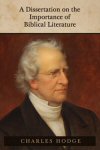
Charles Hodge's first publication, this dissertation discusses the two branches of biblical literature: criticism and interpretation.
. . . bears the marks of fervent piety, as well as the impress of a clear and discriminating, a judicious and comprehensive mind.
—The Presbyterian Magazine
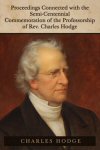
Commemorating Charles Hodge's fiftieth year of teaching at Princeton Theological Seminary, the General Assembly put together a day in his honor and invited former student sand faculty to a day of celebration. This volume includes the addresses given at the celebration, including Hodge's, and the letters from students and faculty members expressing the positive influence Hodge made in their scholastic and spiritual life.
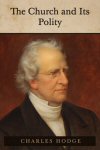
The Church and Its Polity contains the lectures Charles Hodge gave on the subject of ecclesiology. Hodge had one day hoped to revise these lectures to be added into his Systematic Theology, but Hodge never found the time. Edited by one of his students and his son A. A. Hodge, these lectures concerning the administration of ecclesiastical affairs contain a vast amount of valuable discussion of Church principles and their practical applications.
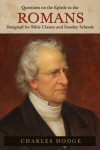
Designed for use in the classroom but of much use to the ordinary reader, this handbook serves as an accompaniment to Hodge's commentary on Romans. Following the structure of the commentary, Hodge has produced study questions to ponder and answer as you work your way through his commentary. These questions work independently of his commentary as well, posing great questions about Paul's epistle that any student of the Bible would find useful.
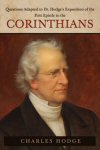
Designed for use in the classroom but of much use to the ordinary reader, this handbook serves as an accompaniment to Hodge's commentary on the First Epistle to the Corinthians. Following the structure of the commentary, Hodge has produced study questions to ponder and answer as you work your way through his commentary. These questions work independently of his commentary as well, posing great questions about Paul's epistle that any student of the Bible would find useful.
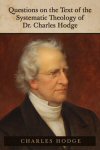
Designed for use in the classroom but of much use to the ordinary reader, this handbook serves as an accompaniment to Charles Hodge's 3-volume Systematic Theology. Following the structures of those volumes, A. A. Hodge has produced study questions to ponder and answer as you work your way through each book. This volume also includes A. A. Hodge's essay "Various Methods and Schemes According to Which the Material of Christian Theology Has Been Arranged."
Gives a clear and full analysis of one of the most learned and instructive systems of Calvinistic theology.
—The Presbyterian Review
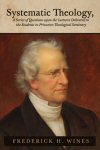
Charles Hodge's method of teaching theology to the students in the Theological Seminary at Princeton was by manuscript lectures, which he read to the successive classes. The questions printed in this volume are his own questions based on his own lectures, and furnish a general view of the course of study in his classroom. Students found that using this volume while studying his 3-volume Systematic Theology greatly aided their studies.
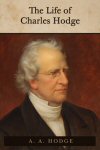
After Hodge’s death in 1878, his son, Archibald Alexander Hodge penned this biography of his father. Drawing from Charles Hodge’s published writings, extant manuscripts, correspondence, and personal memories, A. A. Hodge offers this revealing look at his father’s studies, his relationships with his family members, his travels, and the lifelong friendships which informed and influenced his teaching and theological reflection. The Life of Charles Hodge reveals the story behind one of the nineteenth century’s most thoughtful Christians and the church’s most profound theologians.
A. A. Hodge was born in 1823 in Princeton, the son of Charles Hodge. He was named after Archibald Alexander, the principal of Princeton Theological Seminary from 1812 to 1840. A. A. Hodge attended Princeton College and Princeton Theological Seminary, graduating in 1847. He spent three years in India as a missionary, before returning to America to become professor of systematic theology at Western Theological Seminary in Pittsburg, Pennsylvania in 1864. In 1877, A. A. Hodge left Western Theological Seminary to return to Princeton Theological Seminary to succeed his father as the chair of systematic theology. Archibald Alexander Hodge died in 1886.
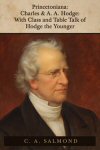
Princetoniana was crafted by an anonymous student, familiar with the life and work of both Charles Hodge and A. A. Hodge. The first part of this volume is biographical, drawing from numerous sources and witnesses to capture the relationship between A. A. Hodge and his father, as well as Charles Hodge’s influence on him. This biographical sketch provides a rare glimpse of their lives together, telling the story of A. A. Hodge’s rise to prominence at Princeton after his father’s death and his place among the Princeton theologians. The second half of Princetoniana contains aphorisms, short sayings, classroom notes, and short theological treatises written by A. A. Hodge.
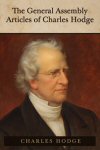
Starting in 1835, Charles Hodge began to write a series of annual articles, in review of the action of each successive General Assembly of the American Presbyterian Church, in which he furnished a brief narrative of the proceedings, and discussed the doctrinal and ecclesiastical principles involved. They contain an exposition of his views because "it is a matter of importance to have the grounds on which certain measures were advocated and opposed spread before the ministers and elders of the Church." This resource includes the following articles:
- The General Assembly: 1835
- The General Assembly: 1836
- The General Assembly: 1837
- The General Assembly: 1838
- The General Assembly: 1839
- The General Assembly: 1840
- The General Assembly: 1842
- The General Assembly: 1843
- The General Assembly: 1844
- The General Assembly: 1845
- The General Assembly: 1846
- The General Assembly: 1847
- The General Assembly: 1848
- The General Assembly: 1849
- The General Assembly: 1850
- The General Assembly: 1851
- The General Assembly: 1852
- The General Assembly: 1853
- The General Assembly: 1854
- The General Assembly: 1855
- The General Assembly: 1856
- The General Assembly: 1857
- The General Assembly: 1858
- The General Assembly: 1859
- The General Assembly: 1861
- The General Assembly: 1862
- The General Assembly: 1863
- The General Assembly: 1864
- The General Assembly: 1865
- The General Assembly: 1866
- The General Assembly: 1867
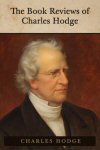
For almost forty years Charles Hodge contributed book reviews to The Biblical Repertory and Princeton Review. Far from the traditional book review, Hodge's critique of the book(s) most times served as a leaping point for discussing various topics, including politics, slavery, ecclesiasal matters, doctrinal discussions, and more. These reviews are just as bold and engaging as the essays Hodge is known for, and this collection contains every review he penned for the The Biblical Repertory and Princeton Review from 1829–1868:
- Examination of the Review of the American Education Society. To the Editors of the Biblical Repertory, 1829
- Inquiries Respecting the Doctrine of Imputation, 1830
- Professor Stuart's Postscript to His Letter to the Editors of the Biblical Repertory, 1830
- Regeneration, and the Manner of Its Occurrence, 1830
- The Advancement of Society in Knowledge and Religion, 1831
- The American Quarterly Review on Sunday Mails, 1831
- Remarks on Dr. Cox's Communication, 1831
- Review of Sprague's Lectures to Young People, 1831
- Hengetenberg's Vindication of the Book of Daniel, 1832
- The New Divinity Tried, 1832
- A Commentary on the Epistle to the Romans, with a Translation and Various Excursus. By Moses Stuart, Professor of Sacred Literature in the Theological Seminary at Andover, 1833
- Lachmann's New Testament, 1834
- A Narrative of the Visit to the American Churches by the Deputation from the Congregational Union of England and Wales, 1835
- Notes, Explanatory and Practical, on the Epistle to the Romans; Designed for Bible Classes and Sunday Schools, 1835
- Slavery, 1836
- The Greek Testament, with English Notes, Critical, Philological, and Exegetical, Partly Selected and Arranged from the Best Commentators, Ancient and Modern, but Chiefly Original, 1837
- A Plea for Voluntary Societies and a Defense of the Decisions of the General Assembly of 1836 against the Strictures of the Princeton Review and Others, 1837
- Facts and Observations Concerning the Organization and State of the Churches in the Three Synods of the Western Reserve, 1838
- Tracts for the Times, 1838
- A Brief History and Vindication of the Doctrine Received and Established in the Churches of New England, with a Specimen of the New Scheme of Religion Beginning to Prevail, 1839
- Decretum Synodi Nationalis Ecclesiarum Reformatarum Galliae initio Anni 1645, de imputatione primi peccati omnibus Adami posteris, cum Ecclesiarum et Doctorum Protestantium consensu, ex scriptis eorum, ab Andrea Riveto collecto, 1839
- Letters to the Rev. Professor Stuart, Comprising Remarks on His Essay on Sin, Published in the American Biblical Repository, for April and July 1839, 1839
- Catalogus Collegii Neo-Cæsariensis. Princetoniæ. Typis Roberti E. Hornor, 1840
- Davies' State of Religion among the Dissenters in Virginia, 1840
- A Discourse on the Latest Form of Infidelity, Delivered at the Request of the Association of the Alumni of the Cambridge Theological School, on the 19th of July, 1839, with Notes. A Letter to Mr. Andrews Norton, Occasioned By his Discourse before the Association of the Alumni of the Cambridge Theological School on the 19th of July, 1839, 1840
- A History of the Rise, Progress, Genius, and Character of American Presbyterianism. Together with a Review of the 'Constitutional History of the Presbyterian Church in the United States of America,' By Charles Hodge, Professor in the Theological Seminary at Princeton, NJ, 1840
- The Substance of a Discourse, Delivered upon the Occasion of the Semi-Centenary Celebration, on the Second Sabbath in December, 1839, before the Presbyterian Church in Cheraw, S. C., 1840
- 1. A Brief Examination of the Proofs, by Which the Rev. Mr. Boardman Attempts to Sustain His Charge That 'A Large and Learned Body of the Clergy of the Church (of England) Have Returned to Some of the Worst Errors of Popery'; with a Word or Two as to His Attempt, Without Proof, to Cast the Suspicion of Popery on the Protestant Episcopal Church in the United States of America: 2. A farther Postscript to Bishop Doane's Brief Examination of Rev. Mr. Boardman's Proofs: Touching Bishop Kenrick's Letter on Christian Union, 1841
- 1. The Divine Rule of Faith and Practice; or a Defense of the Catholic Doctrine that Holy Scripture has Been Since the Times of the Apostles the Sole Divine Rule of Faith and Practice, against the Dangerous Errors of the Authors of the Tracts for the Times, and the Romanists, as, Particularly that the Rule of Faith is 'Made up of Scripture and Tradition Together;' &c., in which also the Doctrines of Apostolical Succession, the Eucharistic Sacrifice, &c. are Fully Discussed. 2. A Treatise Concerning the Right Use of the Fathers in the Decision of Controversies in Religion. 3. Not Tradition, but Scripture. 4. The Authority of Tradition in Matters of Religion. 5. Tradition Unveiled, 1842
- The History of Christianity, from the Birth of Christ to the Abolition of Paganism in the Roman Empire, 1842
- Sermons on Important Subjects, by the Reverend Samuel Davies, A.M., President of the College of New Jersey. With an Essay on the Life and Times of the Author, 1842
- 1. The Integrity of our National Union vs. Abolitionism. An Argument from the Bible, in Proof of the Position, that Believing Masters Ought to Be Honored and Obeyed by Their Servants, and Tolerated in, Not Excommunicated from, the Church of God, Being Part of a Speech Delivered before the Synod of Cincinnati, on the Subject of Slavery. September 19th, and 20th, 1843. 2. The Contrast, or the Bible vs. Abolitionism: an Exegetical Argument. 3. A Review of the Rev. Dr. Junkin's Synodical Speech, in Defense of American Slavery, with an Outline of the Bible Argument against Slavery. 4. Line of Demarcation between the Secular and Spiritual Kingdoms, 1844
- The Claims of the Free Church of Scotland, 1844
- The Arguments of Romanists from the Infallibility of the Church and Testimony of the Fathers in Behalf of the Apocrypha, Discussed and Refuted, 1845
- Christ, The only Sacrifice: or the Atonement in Its Relations to God and Man, 1845
- Principle of Protestantism as Related to the Present of the Church, 1845
- The Catholic News Letter, St. Louis. 2. The True Catholic, Louisville, 1846
- Evangelische Kirchen-Zeitung. Herausgegeben von C. W. Hengstenberg, 1846
- Lectures on Biblical History, Comprising the Leading Facts from the Creation to the Death of Joshua. Designed for the Use of Families, Bible Classes and Young People Generally, 1846
- Lectures on Mental Philosophy and Theology, 1846
- The Unity of the Church, 1846
- 1. Discourses on Christian Nurture. 2. Dr. Tyler's Letter to Dr. Bushnell on Christian Nurture. 3. An Argument for 'Discourses on Christian Nurture,' addressed to the Publishing Committee of the Massachusetts Sabbath School Society, 1847
- An Earnest Appeal to the Free Church of Scotland, on the Subject of Economics, 1847
- Lectures on Systematic Theology, Embracing Lectures on Moral Government, Together with Atonement, Moral and Physical Depravity, Philosophical Theories, and Evidences of Regeneration, 1847
- The Mystical Presence. A Vindication of the Reformed or Calvinistic Doctrine of the Holy Eucharist, 1848
- The Power of the Pulpit, 1848
- God in Christ; Three Discourses Delivered at New Haven, Cambridge, and Andover; with a Preliminary Dissertation on Language, 1849
- The Question of Negro Slavery and the New Constitution of Kentucky, 1849
- The Theology of the Intellect and That of the Feelings, 1850
- Conscience and the Constitution, 1851
- Histoire de l'Eglise Vaudoise, depuis son origine, et des Vaudois du Piémont jusq'à nos jours, avec un appendice contenant les principaux écrits originaux de cette église, 1851
- Remarks on the Princeton Review, 1851
- The Conflict of Ages; or, The Great Debate on the Moral Relations of God and Man, 1854
- The Education Question, 1854
- History of the Apostolic Church; with a General Introduction to Church History, 1854
- A Vindication of the Doctrine of the Church of England on the Validity of the Orders of the Scotch and Foreign Non-Episcopal Churches, 1854
- Eutaxia; or, the Presbyterian Liturgies: Historical Sketches, 1855
- The Life of Archibald Alexander, 1855
- The Truth and Life, 1855
- The Church Review and Register for October 1855, 1856
- The Elements of Psychology: Including a Critical Examination of Locke's Essay on the Human Understanding, and Additional Pieces, 1856
- The Inspiration of Holy Scripture, Its Nature and Proof, 1857
- The Tecnobaptist: A Discourse, wherein an Honest Baptist, by a Course of Argument to Which No Honest Baptist Can Object, is Convinced that Infant Christians are Proper Subjects of Christian Baptism, 1858
- Sunday Laws, 1859
- The Testimony of Modern Science to the Unity of Mankind, 1859
- Christian Life and Doctrine, 1860
- The First and Second Adam. The Elohim Revealed in the Creation and Redemption of Man, 1860
- Reid's Collected Writings, 1860
- The Vicarious Sacrifice, Grounded in Principles of Universal Obligation, 1866
- Presbyterian Reunion, 1868
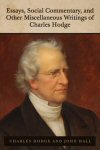
This resource culls together essays, sermons, speeches, addresses, letters, and other miscellaneous writings that didn't appear in book form. Most of these writings come from The Biblical Repertory and Princeton Review, but others were printed in other theological journals, newspapers, essay anthologies, church announcements, sermon collections, and more. This resource includes the following:
- The State of Religion in France, 1827
- Introductory Lecture Delivered in the Theological Seminary, Princeton, NJ Nov. 7, 1828, 1829
- Public Education. Plans for the Government and Liberal Instruction of Boys in Large Numbers; as Practiced at Hazelwood School, 1829
- Anniversary Address: American Home Missionary Society, 1829
- On the Nature of Atonement, 1832
- On the Necessity of a Knowledge of the Original Languages of the Scriptures, 1832
- Suggestions of Theological Students, on Some of Those Traits of Character, Which the Spirit of the Age Renders Peculiarly Important in the Ministers of the Gospel, 1833
- The Act and Testimony, 1834
- The Act and Testimony, no. 2, 1835
- Mr. H. Everett's Report on Indian Affairs. Presented to the House of Representatives of the United States, on the 20th of May, 1834, 1838
- Proceedings of the General Assembly of the Free Church of Scotland, May 1843: With a Sketch of the Proceedings of the Residuary Assembly, 1844
- A Brief Account of the Last Hours of Albert B. Dod, 1845
- Essays in the Presbyterian by Theophilus, on the Question: Is Baptism in the Church of Rome Valid? 1846
- 1. American Board of Commissioners for Foreign Missions. Special Report of the Prudential Committee, on the Control to be Exercised Over Missionaries and Mission Churches. 2. Correspondence between the Cherokee and Choctaw Missions, the Rev. S. B. Treat, and the Prudential Committee, 1849
- Faith in Christ the Source of Life, 1852
- Idea of the Church, 1853
- Visibility of the Church, 1853
- The Faithful Mother's Reward: A Narrative of the Conversion and Happy Death of J. B. Who Died in the Tenth Year of His Age, 1853
- The Church—Its Perpetuity, 1856
- Free Agency, 1857
- Report on the History and Recent Edition of the English Version of the Bible, 1857
- Adoption of the Confession of Faith, 1858
- The Revised Book of Discipline, 1858
- Sermons Preached before the Congregation of the Presbyterian Church, 1859
- Demission of the Ministry, 1859
- Theories of the Eldership—The Constitutional View of the Presbyterian Church, 1860
- Memorial of Cortlandt Van Rensselaer, 1860
- The Church and the Country, 1861
- The State of the Country, 1861
- Are There Too Many Ministers? 1862
- England and America, 1862
- Examination of Some Reasonings Against the Unity of Mankind, 1862
- Relation of the Church and State, 1863
- The War, 1863
- Can God Be Known? 1864
- The Princeton Review on the State of the Country and of the Church, 1865
- Principles of Church Union, and the Reunion of the Old and New-School Presbyterians, 1865
- Nature of Man, 1865
- President Lincoln, 1865
- Sustentation Fund, 1866
- The Protest and Answer, 1868
- A Solemn Question! Can the Protestants Conscientiously Build up the Churches of the Pope? 1873
- A Discourse Delivered at the Re-Opening of the Chapel, September 27, 1874, 1874
- Christianity Without Christ, 1876
- Is the Bible Infallible? Speeches in the Rev. Dr. Dod's Case, 1878
- Discourses Commemorative of the Life and Work of Charles Hodge, 1879
- Arminianism and Grace, 1881
- The Teaching Office of the Church, 1882
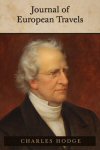
Journal of European Travels
- Author: Charles Hodge
- Publication Date: 1827–1828
- Pages: 184
For three years Charles Hodge traveled abroad to continue his theological studies. He studied under some of the leading German theologians of the day and traveled through Paris, Halle, Berlin, Dresden, and more. During his travels, Hodge kept a journal where he recorded his thoughts about the journey and his studies—portions of which have survived. These hand-written papers have been digitally transcribed by Logos Bible Software, giving unprecedented access to twelve months of Hodge's journals from 1827–1828. The following months have been transcribed:
- March, 1827
- April, 1827
- May, 1827
- June, 1827
- August, 1827
- September, 1827
- October, 1827
- December, 1827
- January, 1828
- February, 1828
- March, 1828
- April, 1828
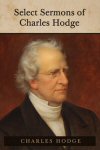
Select Sermons of Charles Hodge
- Author: Charles Hodge
- Publication Date: 1842–1849
- Pages: 156
Digitally transcribed by Logos Bible Software from hand-written papers, this resource includes five sermons by Charles Hodge on the Epistle to the Romans. Fully searchable with Logos Bible Software, these rare sermons from Charles Hodge are more accessible than ever. Sermons included:
- Romans 1:16
- Romans 3:29
- Romans 8:1
- Romans 11:33–36
- Romans 12:11
Charles Hodge counts as one of the most influential theologians of the nineteenth century and one of Calvinism’s most ardent defenders in America. He was born in 1797 in Philadelphia to Hugh and Mary Hodge. He graduated from the College of New Jersey (Princeton University) in 1815, and was ordained in the Presbyterian Church in 1821. In 1822, at the request of Archibald Alexander, he became a professor at Princeton, and taught biblical literature and systematic theology until 1878. From 1826 to 1828, Hodge also studied in Europe, and became acquainted with Friedrich Augustus Tholuck, Wilhelm Gesenius, Augustus Neander, and Friedrich Schleiermacher.
During his tenure at Princeton, Hodge instructed more than three thousand ministers, served as moderator of the Presbyterian General Assembly in 1846, helped revise the Presbyterian Church’s Book of Discipline, and served on the Board of Foreign Missions. He also founded the Biblical Repertory and Princeton Review and served as its editor for forty-three years. In addition to his systematic theology and four Bible commentaries, Hodge also wrote books on the Presbyterian Church and published numerous articles.
Charles Hodge died on June 19, 1878. Among his last words: “To be absent from the body is to be with the Lord, to be with the Lord is to see the Lord, to see the Lord is to be like him.”
Reviews
7 ratings

Dylan Rowland
4/22/2020
Excellent set! I've been studying the life and thought of Charles Hodge for a little over a year now and have found this set to be very helpful in my studies.Phil Niebergall
1/10/2020

Kevin Bratcher
6/12/2018
Allan Story
5/5/2017

Phil Gons
7/14/2013

Matthew C Jones
6/28/2013
Great looking set But... By my count I already have 10 volumes of this set in AA Hodge & Charles Hodge titles. It is sad to pay a second time. If we wait for dynamic pricing we lose the Community Pricing advantage on the remaining titles. I hope this is not a new trend in bundling.Marvin Ball
5/31/2013
These resources are very useful - especially the Systematic Theology and the commentaries on Bible books. Will it be possible to offer a reduced price to those of us who already have Logos editions of the Systematic Theology, commentaries, Sermon Outlines, et al?